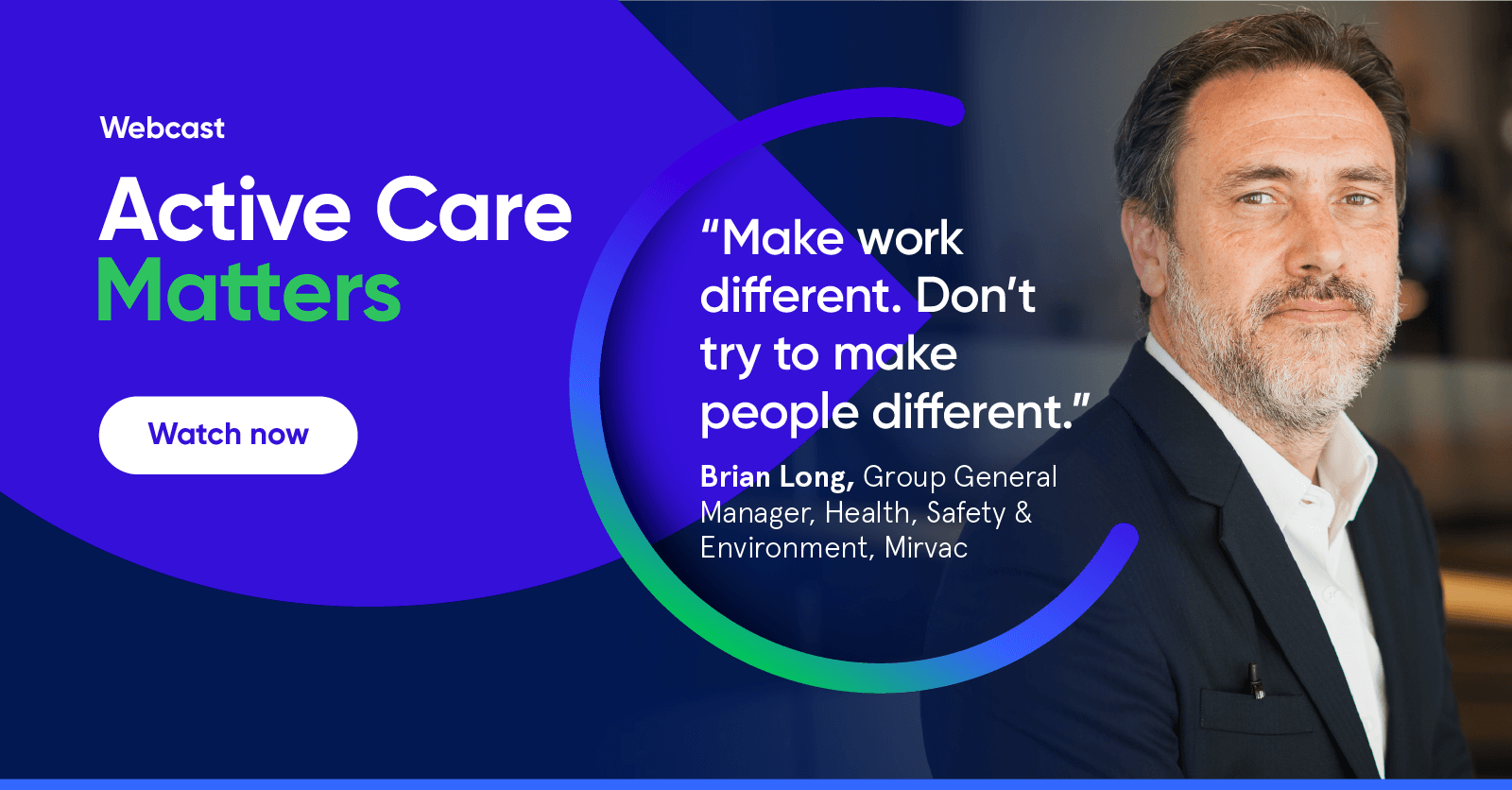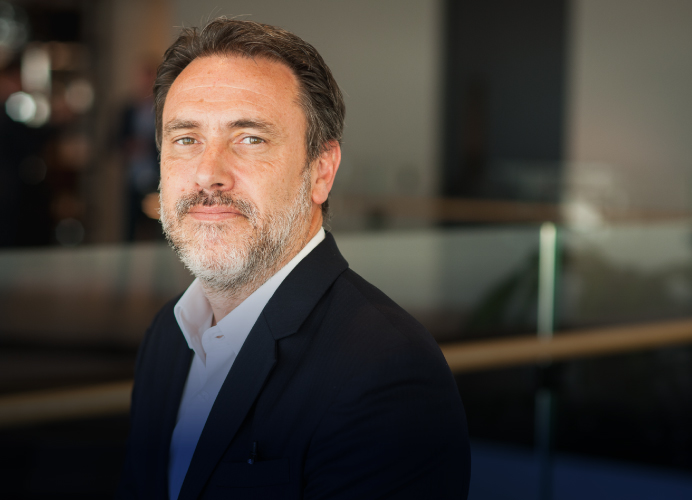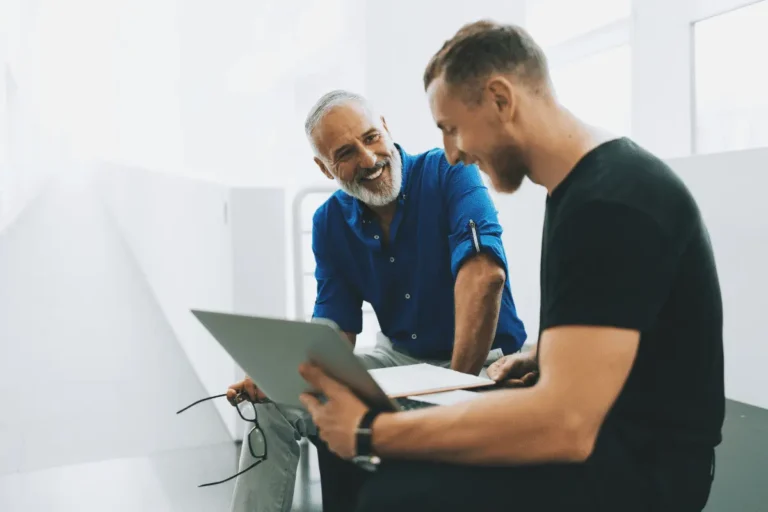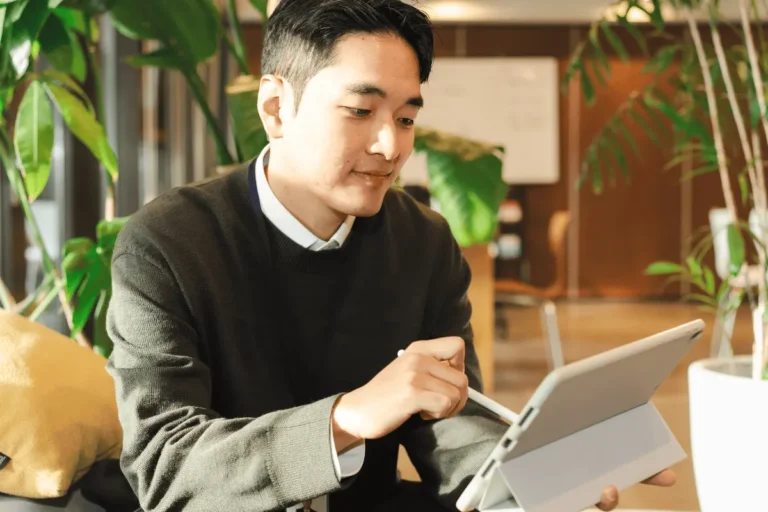Mirvac’s Brian Long recently sat down with Sonder’s CEO Craig Cowdrey to talk about psychosocial risk, shared responsibility, and employee wellbeing. Their conversation shares some fabulous quotes and insights about creating a wellbeing culture that moves beyond traditional HR and WHS ‘tick and flicks’.
Brian is a highly influential health, safety and risk wellbeing leader who has enjoyed an amazing career that has taken him all over the world, including 18 years in various roles across Europe and Asia-Pac at Lendlease, followed by time in Spain at the engineering consulting firm AECOM. He then moved to Australia, where he led health and safety at Woolworths Group, before moving to Mirvac as their Group General Manager for Health, Safety and Environment.
Video (Part 2)
Today’s post shares part two of the video and transcript from Craig and Brian’s conversation – which focusses on psychosocial risk, shared responsibility, and employee wellbeing.
If you missed part one, we invite you to read the transcript here or watch the full interview here.
Transcript (Part 2)
Craig Cowdrey:
Yeah, it’s a really interesting point you make and one that we talk about a bit here at Sonder, which is that you need to really tailor the employee experience to that employee’s needs.
Not just because that’s what they demand but because that is also what makes them a happier and healthier and therefore more productive employee, and that’s what attracts people to that environment and helps them to be their best version of themselves in that environment and often to stay longer as well.
And a big part of that is meeting them at their point of need, allowing them to take control, or what we call active care, over their own wellbeing journey. Because everyone is different, as we’ve spoken about.
Brian Long:
Absolutely. And look, I think it’s a positive thing that we’ve seen codes or practice and regulations start to evolve in the last number of years.
Obviously, the emergence of psychosocial risks and hazards – a light being shone on that. That’s absolutely going to start to force employers to look at those work conditions and the work environment and work itself.
And really start to sort of evaluate what is it about the work that I’m putting onto people that I could do better or different – could I leverage technology to make it better for people?
So, I think all of these things are starting to move the needle towards that place where we start to actively challenge the notion of work, and that work is what it is.
But it’s definitely not something that should be, I guess, a deterrent of somebody’s wellbeing or their overall wellness.
Craig Cowdrey:
Absolutely. And ideally, the two are aligned. I think there was a previous time when people thought – and perhaps some people still think this today – that high wellbeing is nice to have, but it comes at the expense of performance and business performance, but actually, really strong wellbeing can contribute, and does contribute, strongly to business performance.
But I wanted to ask you about, and drill into that point, around the employer’s role in supporting their employees. This concept of shared responsibility. I talk to a lot of people leaders – it’s recognised, it has been for a long time, that there’s a shared responsibility between the employer and the employee around the environment in which they work. Certainly the physical environment for a long time, around traditional slips and trips – OH&S. Now this is evolutioned towards really looking at psychological safety, but also psychosocial hazards in the workplace.
That definition of shared responsibility and what the company is liable for, where do you see that liability start and stop, and how do you see shared responsibility really playing out in a really effective way?
Brian Long:
I think firstly the thing I’d say Craig, is I get nervous around words like liability. And, you didn’t say this, but these two things tend to go hand in glove – liability and blame, or culpability. I think the opportunity with this kind of conversation is to keep it at the shared responsibility piece.
And the reason I say that is because, actually the physical safety realm gives us some really good insights into what can be achieved. But also some of the pitfalls and some of the things that can go wrong if you over-focus on a particular area or a particular way of responding to this kind of challenge.
And what I mean by that specifically is, it wasn’t that long ago that most organisations, particularly in the 90s and early 2000s, would have actively said that the physical health and safety of people is a shared responsibility.
So, we will give you tools, but you have to be safe, because it’s on you to be safe. I think what’s happened over the last 20 years in particular though, a little bit parallel to what I said earlier, is that the companies that have really been successful in eradicating the possibility of physical harm are the ones that have understood that, actually the dominant player in this is the organisation, and the fixing of the organisational factors.
And the changing of the view or the notion around what people can be. And actually, people are resourced to be cherished and utilised as opposed to a resource that needs to be kind of controlled or monitored or checked or be compliant.
So I think there’s some really strong learning opportunities with the journey that people have been on with physical safety. And when I reflect on shared value or shared accountability or shared responsibility, I always put that emphasis on, of course individuals need to be responsible and need to do the right thing and need to act with respect and integrity, etcetera.
But organisationally, organisations must do a lot more, I think, in terms of the fabric of what they put in place around work and what are the expectations they’re placing on people. Because it’s only then that you’ll get that true shared responsibility and shared accountability.
Craig Cowdrey:
Yeah, and those inputs into really creating that environment around classic things that we hear all the time – job clarity, being linked to the company’s purpose, being given the resources, knowing what success looks like, being given regular feedback – all of these types of things are so important to contribute to that outcome.
I wanted to zero in, though, on the Health, Safety and Environment team’s role in this – whether it’s a HSE professional, or a group, or that’s carried perhaps in some organisations by the People and Culture or HR team. What’s their role really in, not only implementing policies that they have control over, but also monitoring their success and actually following up to make sure there’s appropriate iteration and improvement there?
Brian Long:
I think it’s quite a wicked problem for most organisations at the moment in the context of how do you manage and administer this particular aspect amongst the team. Ten years ago, it was very traditionally kind of a HR team’s responsibility to manage people. I think organisations were there was a traditional exposure to maybe higher risk or the possibility of somebody being seriously hurt or killed. They tended to have a Health and Safety department as well, so you kind of delineated on HR would look after the more people administration and safety would look after that sort of risk component.
More and more organisations have obviously evolved and most organisations, I would say, would have pretty robust and mature departments in those two areas. What wellbeing now is doing though, is it’s challenging the way these two entities within an organisation actively come together to support wellbeing.
Because it is kind of the nexus, or the crossover, of those two things. There’s a risk component, but then there’s also a people care, coaching, mentoring, assessing, responding to need component. And those two groups have traditionally operated quite separately. What wellbeing is forcing upon organisations is how do I bring these two bits together and, quite frankly, do I have the capacities within my organisation to be able to do this effectively?
So, I think over time, the notion of wellbeing and how you assess the risk but then respond to the need, you may actually start to see a whole kind of new cohort emerge, which is somewhat of an amalgam between safety risk people and more sort of, I guess, responsive care or people focused individuals that have traditionally come up through HR.
So, we’re no different to anybody else, we’re kind of grappling with that at the moment, and I think the policy landscape is the same – people are trying to match these two policies, where I know I’ve got to assess risk and manage the risk, but I can’t get all too tick-box-y and clipboard-y because at the end of the day that will drive the wrong message and the wrong behaviour, so how am I going to maintain this level of care and support that people have kind of wanted to demand.
So, an interesting area that is, sort of, I guess, a work in progress for most people, I’d say.
Craig Cowdrey:
Absolutely. And how is that shift playing out on the executive forums and boardrooms, and what’s coming out from those bodies in terms of their level of expectation, their interest in this space, and how they’re seeing it evolve over time?
Brian Long:
I would say there’s a few things happening. I think, firstly, there’s a growing interest and awareness at board level, in particular, and executive level. It’s definitely been turbocharged on the back of the pandemic, which again, to your initial question, they are some of the positive things that have come out of the pandemic, it’s kind of placed it on the executive and board agenda, and probably that’s never going to go away, which is good.
I think there’s apprehension still around, what are the questions I should be asking, or what are the things I should be interested in? And there’s definitely this uncertainty around, but if the person is presenting an issue and that’s a home or a lifestyle issue, what is it about work and how do we make that, and should work be responsible?
So that’s certainly an area that I think people are kind of grappling with, which is why, I think, it’s not a bad thing that things have evolved in recent times around, if we could prioritise at the very least that psychosocial component, which is the coming together of the work factors with the individual factors, then I think boards and executives can at least see, that’s a frame, and I can anchor to that frame, and I can ask proper questions around not just what we are doing as an organisation to fix those work factors, but what is it that we can do in terms of more, I guess, triage and supporting the individuals, which is where people like Sonder come in, in terms of helping people just grapple with their daily lives, and indeed blending together life and work.
Craig Cowdrey:
And when it comes to measuring the impacts – there’s different metrics I’m sure you’d look at and that the board or executive would look at when it comes to mitigating some of the hazards that might be in place, but there’s a compliance angle there, and notwithstanding that, I agree in terms of the framing around liability, but there is legislation that’s come out.
But ideally, getting beyond that to actual productivity metrics. Any sort of insight on how you think about measuring the impact of these different programs, and from an individual level but also from an organisational level, commercial level?
Brian Long:
Sure. I think firstly, there’s a foundational thing that most organisations need to get their head around, and that is, how do you measure the psychological safety component that exists within an organisation? Because most of the things that we’ve been talking about today won’t flourish until such time as people feel it’s safe and it’s okay to raise a particular issue.
So, if you’ve got an issue with a boss, or you’ve got an issue with a policy, or you’ve got an issue with a teammate, if your work environment is one where it’s not the norm, or it’s not encouraged for people to openly speak about those things or people are encouraged to speak about those things, then it’s unlikely those things will get the treatment or the airtime they deserve.
So, we are starting to look at, how do you quantify psychological safety, and what is it that you could measure, assess, count in the context of, is this a safer or less safer environment than it may have been prior?
And so, I think that’s sort of a foundational thing that most people need to get right. And then after that, my sense would be that we’ll start to look at people’s buy-in to particular initiatives, so, particular programs or the amount of times that they do a particular thing.
And we can correlate that with their contribution to a particular endeavour in the organisation or their contribution to the financials or some other commercial aspect, and start to see that point that you’ve just made, which is, my employees, when they feel truly backed, truly cared for, truly respect, low and behold they’re willing to give that discretionary effort, and I can track and measure the connection between those two things.
But I would like to stress, and I reiterate, you can’t do any of this without this psychological safety. And I think, particularly in these organisations today where we’ve got boomers and we’ve got Gen Zs and Gen Ys and all the other generations in between, everybody has got a different take on that stuff.
The older generations, you don’t say it, don’t dob in your friends, but younger generations have a whole different perspective. so, organisations really have to figure out how do I create that psychological safety whereby that tolerance exists, and once I create that, then I think you’ll start to see people embracing a lot of the things that we’re talking about.
Craig Cowdrey:
Absolutely. And actually, you’ve just jumped to…I’ve got some quickfire questions here, I wanted to move to, Brian. So, actually the first one you’ve just touched on already. So, I wanted to move through these questions, get your snap responses, and then I’ll sum up a bit towards the end. You’ve been very generous with your time, and thank you again for that.
So, first, which generation do you think is best to be taking active control in their lives. I’ll define the generations for you. Boomers – mentioned, Gen X, Gen Y, or Gen Z?
Brian Long:
I think they all take active control of certain things within their lives.
Craig Cowdrey:
The diplomatic answer.
Brian Long:
That’s not meant to be a cop-out, but I do reflect on Boomers, you know, tended to be good golfers, so they must have been doing something right in the context of work and recreation, as much as they seem to enable time to be able to play golf.
But joking aside, I think you’re looking at the later generations in the context of they’re very, very clear that work is a component part of a holistic kind of menu of things that they want to do in their life. And I think that’s where we need to evolve to, that most people can see it that way.
So, I would say, yes, it’s the Zs probably that are a little bit ahead of the game in terms of understanding that.
Craig Cowdrey:
Okay, well sticking on generations, what do you think Generation Alpha – so 2010 onwards – and I think your son is…
Brian Long:
My son is 11, yes.
Craig Cowdrey:
Eleven, so he’s in that category. What is he going to teach us about wellbeing when he’s a bit older, or even now, as the next generation?
Brian Long:
So, I’ll use him as an example. One thing that he does really, really well is he expresses his views, and he isn’t conditioned by preconceived things that people have told him or the context that he’s in. If he believes that something needs to be said or he needs to convey something, he will. I’ve actually seen a couple of his friends and the dynamic, and they all seem to do that.
So my sense is, that psychological safety component, these guys are just going to smash through that and make sure that, hey, if we’ve got an issue or we’ve got a problem, we are going to say that, and we’re going to make sure that people take notice and respond to that.
So, that’s a good thing. And I would say that’s going to be great.
Craig Cowdrey:
And your son’s name?
Brian Long:
Marcus.
Craig Cowdrey:
So, Marcus, in terms of the technology Marcus is using now, but going forward, what tech is going to help us most, or maybe be most detrimental to improving wellbeing?
Brian Long:
Look, I think AI is the logical place for all of us to go. I can only imagine what Sonder is dreaming up in that context. But coupling what you do, which is you literally – and I think I might have coined this phrase – you can have a guardian angel in your pocket.
Craig Cowdrey:
I think you did, back in Woolworths days.
Brian Long:
Based on your technology today, I can’t even imagine what it would be like when you start to overlay some of the AI opportunities – ChatGPT and all these things that are emerging. It’ll be fascinating. But reiterate the fact that really nothing or nobody is out of reach to anybody in the world, which has got to be a good thing, I guess, in terms of supporting somebody’s wellbeing.
Craig Cowdrey:
And speaking of the future, what’s your favourite futurist prediction, if you have one?
Brian Long:
I think it will be that AI isn’t going to take over, it is that AI is going to make us better human beings. The watchout, I think, is the phase we’re living in, which is – and I’ll put my safety on here for a second, the Boeing 737 MAX is the perfect example – technology and AI, amazing, but don’t underestimate the need or importance of a pilot, which is ultimately what happened, I think, around that particular accident.
So, I think we’re living through this kind of generation of, one is coming up – people are starting to understand or trying to understand what they do with the human component. Let’s just not get rid of the human beings too quickly, because we might all be in trouble.
Craig Cowdrey:
Yeah, we want technology to enable and augment human connection and expertise, not replace it.
Brian Long:
Absolutely.
Craig Cowdrey:
And now, last question – and this is a question I’ve taken from a podcast I used to listen to, so not an original – but if you could have a billboard that every health, safety, environment expert could see, or people leader could see every day on their way to work, what would be that one message you’d put on there?
Brian Long:
That’s a good question.
Craig Cowdrey:
And like I said, not one of mine, so can’t claim it.
Brian Long:
I think it would be back to my point around empathy and understanding. So, something along the lines of, never tire of enquiring whether somebody might need something or you could support them or help them with something that they might need. Because you never know. Something like that.
Craig Cowdrey:
And a great way to end. Thanks very much for your time, Brian.
Brian Long:
Thanks, Craig.
Craig Cowdrey:
And thanks to everyone who’s been listening and watching, and we’ll see you next time on Active Care Matters.
Brian Long:
Thank you.
Watch the full interview with Brian Long
If you missed part one, we invite you to watch the video and/or read the transcript here.
Alternatively, we invite you to watch the full interview here.

Read our recent post about psychosocial risk
To help you navigate the ever-evolving world of psychological health and safety, you may like to read our recap of news, rules, and discussions regarding psychosocial risk, including:
- Legal updates to jurisdictional duty in Australia;
- An updated ISO 45003 guide;
- New Work Demands from Comcare;
- New report from Canada;
- A recent LinkedIn discussion about risk assessment frameworks;
- Two tools for psychosocial risk assessment surveys;
- A great webinar about managing psychosocial risk in the workplace; and
- Actions for organisational leaders
Download our updated ISO 45003 guide
If you’d like a refresher on what the ISO 45003 guidelines mean for managing psychosocial risks in the workplace, we invite you to download our recently-updated guide.
- Key learnings:
- What is ISO 45003?
- Why is ISO 45003 important?
- What are psychosocial risks?
- How does ISO fit in with WHS in AU/NZ rules?
Want to learn more?
For more information about how Sonder can help you rethink your student and employee support, we invite you to contact us.
About Sonder
Sonder is a technology company that helps organisations improve the wellbeing of their people so they perform at their best. Our mobile app provides immediate, 24/7 support from a team of safety, medical, and mental health professionals – plus onsite help for time-sensitive scenarios. Accredited by the Australian Council on Healthcare Standards (ACHS), our platform gives leaders the insights they need to act on tomorrow’s wellbeing challenges today.



